Chris Bridges
Mamba2D: A Natively Multi-Dimensional State-Space Model for Vision Tasks
Dec 20, 2024Abstract:State-Space Models (SSMs) have recently emerged as a powerful and efficient alternative to the long-standing transformer architecture. However, existing SSM conceptualizations retain deeply rooted biases from their roots in natural language processing. This constrains their ability to appropriately model the spatially-dependent characteristics of visual inputs. In this paper, we address these limitations by re-deriving modern selective state-space techniques, starting from a natively multidimensional formulation. Currently, prior works attempt to apply natively 1D SSMs to 2D data (i.e. images) by relying on arbitrary combinations of 1D scan directions to capture spatial dependencies. In contrast, Mamba2D improves upon this with a single 2D scan direction that factors in both dimensions of the input natively, effectively modelling spatial dependencies when constructing hidden states. Mamba2D shows comparable performance to prior adaptations of SSMs for vision tasks, on standard image classification evaluations with the ImageNet-1K dataset.
Fast model inference and training on-board of Satellites
Jul 17, 2023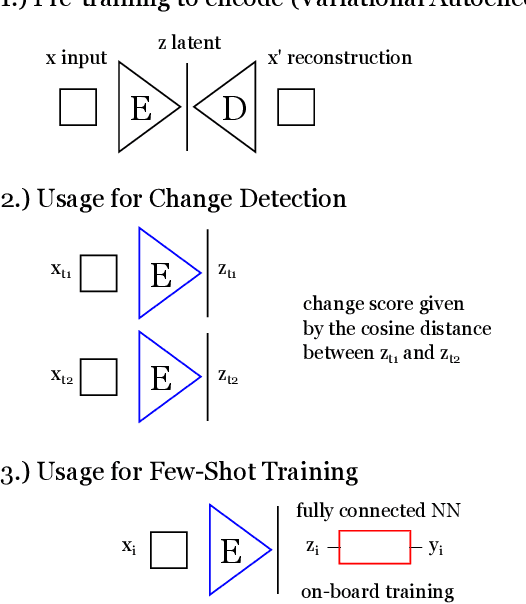
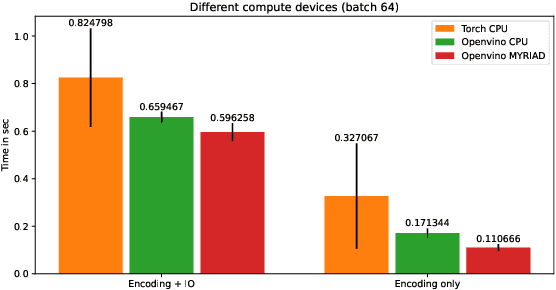
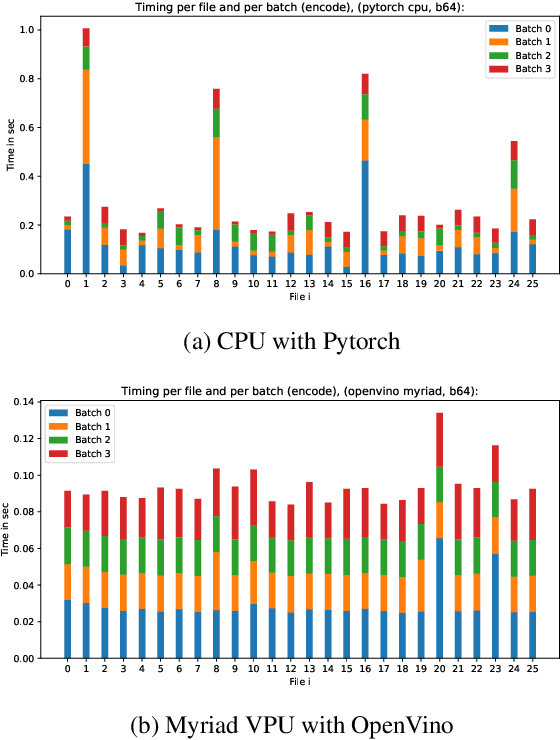
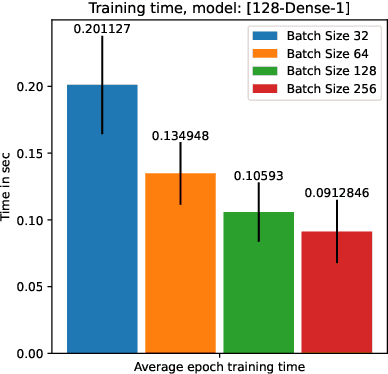
Abstract:Artificial intelligence onboard satellites has the potential to reduce data transmission requirements, enable real-time decision-making and collaboration within constellations. This study deploys a lightweight foundational model called RaVAEn on D-Orbit's ION SCV004 satellite. RaVAEn is a variational auto-encoder (VAE) that generates compressed latent vectors from small image tiles, enabling several downstream tasks. In this work we demonstrate the reliable use of RaVAEn onboard a satellite, achieving an encoding time of 0.110s for tiles of a 4.8x4.8 km$^2$ area. In addition, we showcase fast few-shot training onboard a satellite using the latent representation of data. We compare the deployment of the model on the on-board CPU and on the available Myriad vision processing unit (VPU) accelerator. To our knowledge, this work shows for the first time the deployment of a multi-task model on-board a CubeSat and the on-board training of a machine learning model.
Unsupervised Change Detection of Extreme Events Using ML On-Board
Nov 04, 2021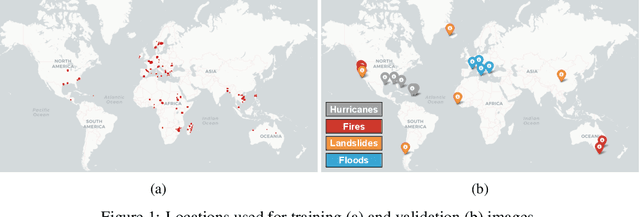

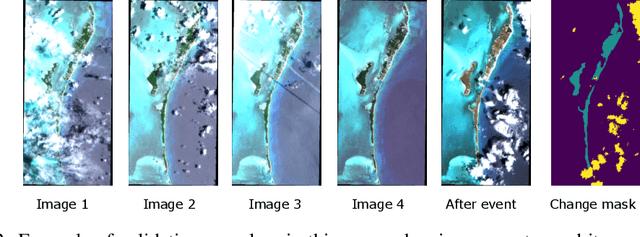

Abstract:In this paper, we introduce RaVAEn, a lightweight, unsupervised approach for change detection in satellite data based on Variational Auto-Encoders (VAEs) with the specific purpose of on-board deployment. Applications such as disaster management enormously benefit from the rapid availability of satellite observations. Traditionally, data analysis is performed on the ground after all data is transferred - downlinked - to a ground station. Constraint on the downlink capabilities therefore affects any downstream application. In contrast, RaVAEn pre-processes the sampled data directly on the satellite and flags changed areas to prioritise for downlink, shortening the response time. We verified the efficacy of our system on a dataset composed of time series of catastrophic events - which we plan to release alongside this publication - demonstrating that RaVAEn outperforms pixel-wise baselines. Finally we tested our approach on resource-limited hardware for assessing computational and memory limitations.
 Add to Chrome
Add to Chrome Add to Firefox
Add to Firefox Add to Edge
Add to Edge